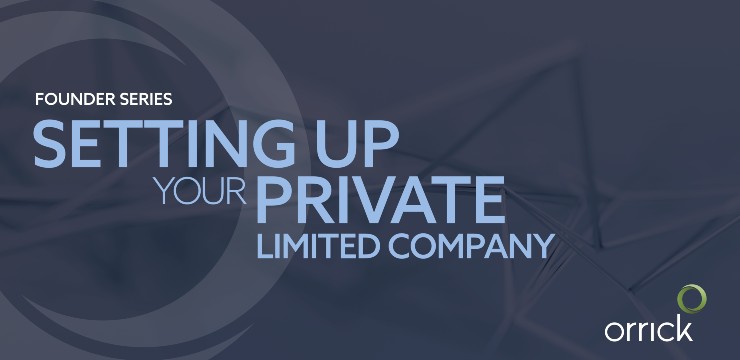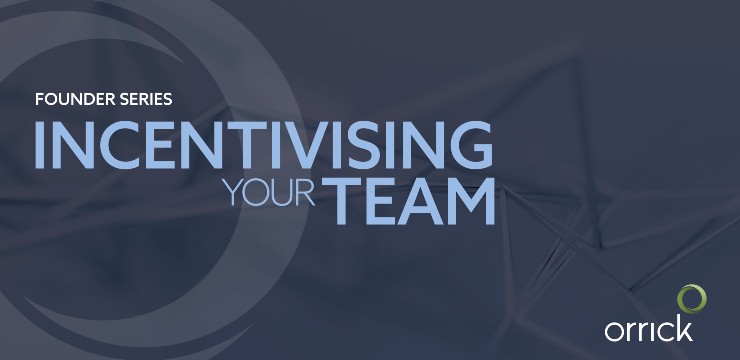UK Founder Series: Top Tips to Follow to Protect Your Ideas
7 minute read | September.29.2022
Beyond its people (which we explored in the last two instalments of the Series), a company's intellectual property (or "IP") is often its most valuable asset, especially for companies in the technology sector. Ensuring that you own the rights in your IP and taking appropriate steps to protect your IP rights is crucial. In this article, members of our Technology Transactions Group offer tips on ten key issues you should consider when looking to protect your IP.
- Ownership of employees' work product and contractors’ work product. As highlighted in the second instalment of the Series, startups should seek to put in place written contracts with their founders and employees, which provide for the transfer to the company of all IP created by them. Whilst the general position under English law is that IP rights created by an employee in the course of their employment automatically vest in the company, putting in place a written, standalone IP assignment agreement increases clarity and lowers the risk of future disputes around IP ownership. This rule does not apply to third party contractors and freelancers. IP created by third parties will belong to those third parties unless it is properly assigned to the company under a written agreement. You should therefore enter into a contractor agreement containing appropriate IP assignment provisions with any third party contractors that the company engages to develop its IP.
- Keep records of your IP development. It is important to keep records of drawings and drafts (ideally signed, dated and marked "confidential") that evidence the development of your IP. If a dispute ever arose and you needed to enforce your rights against someone using the same or similar IP, these records could be useful in resolving the dispute. If you choose to register your IP, comprehensive records are also helpful when preparing your IP registration application.
- Trade marks TM / ®. Trade marks or brands are the signs used by companies to distinguish their goods or services, such as names, logos, slogans and designs. Such branding can be protected by trade mark registration in the UK and can be renewed indefinitely in 10 year increments. Registering your trade marks grants you monopoly rights over them in the territories in which they are registered for the goods and services covered by the registration (provided such trade marks are actively used). Registering your trade marks also makes it easier to take enforcement action against third parties who attempt to copy your marks or use marks which are very similar to yours. A trade mark can be licensed or assigned by its owner and is therefore a valuable commercial asset. Although you might still be able to bring claims in respect of your unregistered trade mark rights, this relies on the common law doctrine of 'passing off', and can be a long, difficult and potentially expensive process.
- Don't confuse trade mark registration with other filings. As mentioned in our first instalment, it is a common misconception that registering a name with Companies House or a domain name for a website, grants trade mark protection. The processes are not linked, and trade marks should be registered separately with the appropriate intellectual property office(s).
- Copyright ©. Software (amongst other creative works) may be protected by copyright. Unlike registered trade mark rights, in the UK copyright protection arises automatically when a qualifying work is first created. Copyright protection gives the owner the right to prevent others from copying and unjustifiably profiting from an original work for a term of up to 70 years from the death of its author. You may be able to use the copyright work of others by licence, but it is important to understand the terms of such licence.
- Take care with open source software (OSS). Some licences provide that if you combine the OSS with your proprietary (closed source) software, you are compelled to distribute your software on the same terms – usually for free – so it is vital that you understand the licence terms of any OSS you use.
- International IP protection. If you trade abroad (or intend to do so in the future), you may want to consider obtaining IP protection in those jurisdictions. This will help to protect your IP as you continue to expand globally and will be something investors will be keeping a keen eye on.
- Using non-disclosure agreements (NDAs). NDAs are contracts that impose confidentiality obligations on the parties to ensure that the information exchanged between them remains confidential. Using NDAs is an effective way to protect against your company's confidential information (including IP, such as trade secrets and proprietary source code) being leaked or shared with competitors. NDAs can be used at various stages of a company's growth, including with third parties to which you give access to new products and designs in the R&D stage of IP development. NDAs can also be put in place before you begin in-depth discussions with potential customers and suppliers and with potential investors during fundraising (although early-stage investors in the UK can be reluctant to enter into NDAs for the purposes of fundraising).
- Protect your IP in contracts. Contracts with customers and suppliers should contain provisions relating to IP ownership and appropriately scoped licences. The following are some of the key considerations in this context:
- Customers: Robust provisions are required in contracts with customers who make use of IP owned by the company so that you can retain control and ownership over the IP. The terms should set out clearly the extent of the licence granted to the customer, including whether it is exclusive, sub-licensable, transferable, and/or limited in time or geographically.
- Suppliers: If your startup uses the IP of another company, this should be formalised through a written licence or an IP assignment. The unauthorised use of IP rights of a third party may risk infringement action by the third party owner against your company.
- Use AI wisely. Licence terms for access to third-party AI tools vary widely. Companies should review terms before implementing AI tools. If your use of an AI tool and any outputs relate to core commercial operations, you may need to enforce ownership rights over any outputs. Some licence terms may only grant you a limited licence to use outputs, with ownership ultimately sitting with the AI tool provider. Businesses who are developing AI tools must be cognizant of whether they will be infringing copyright by copying and analysing data to train AI tools. It’s not currently clear under UK law whether this will be the case, but if no licence or permission to use the data has been granted, businesses could encounter difficulties. For more information on best practices for AI use in your business, please see our article on leveraging AI for business growth.
Our Technology Transactions team can help you put in place the foundational contracts, policies and other legal documents to help you protect your ideas and maximise the value of your IP when seeking a new investment or licensing your technology. This includes founder and employee IP assignments, consultancy agreements, confidentiality agreements/NDAs, brand protection and trade mark registration and IP ownership audits. We also advise on specific issues during corporate transactions and fundraising rounds, whether it's negotiating an IP transfer or licence agreements or helping you navigate a technology related regulatory issue.
If you would like more details on any of the issues above, please contact Faraaz Samadi ([email protected]).
About the Series
Orrick's UK Founder Series offers monthly tips for startups on key considerations at each stage of their lifecycle, from incorporating a company through possible exit strategies. The Series is written by members of our market-leading London Technology Companies Group (TCG), with contributions from other practice members. Our Band 1-ranked London TCG team successfully completed over 350 financings and tech M&A transactions in 2023 & 2024 totalling $5B+ and has dominated the European venture capital tech market for over nine years (Pitchbook).
View all series instalments here
ニュースレター・著作
UK Founder Series: Top Tips to Follow When Setting Up Your Private Limited Company
6 minute read | June.29.2022

